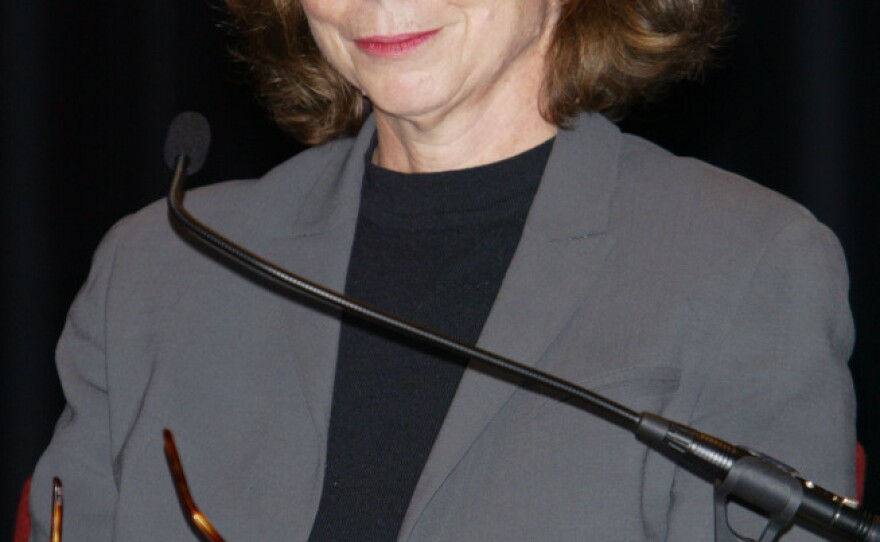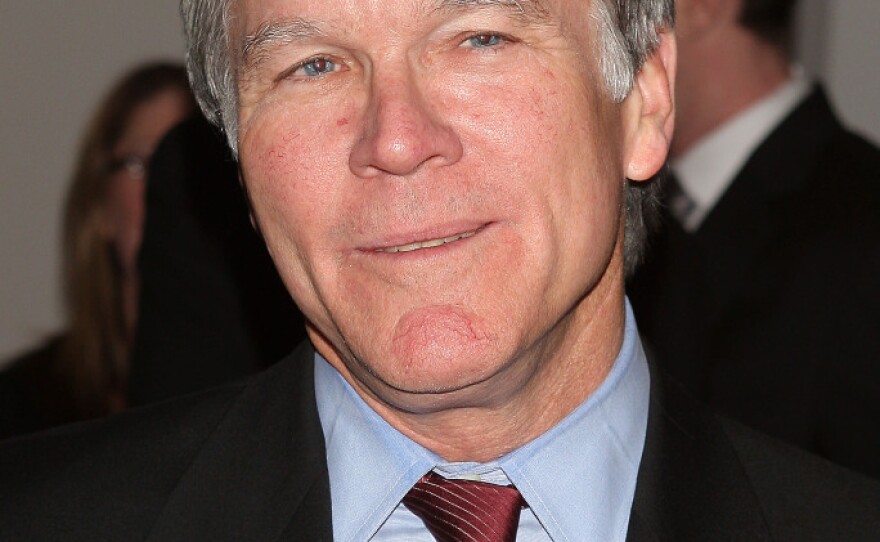New York Times Executive Editor Bill Keller is stepping down to return to writing for the newspaper. He will be replaced by his chief deputy, Jill Abramson, the managing editor for news.
By all accounts, Keller is departing voluntarily after a successful but challenging eight-year tenure. In an interview, he said he went to Arthur Sulzberger Jr., the paper's publisher and the chairman of its parent, the Times Co., to reveal his decision.
"He said, 'Why would you want to leave when things are going so well?' " Keller told NPR. "I said, 'I want to leave because things are going so well.' It feels like we've weathered a lot of storms. I don't want to desert the ship when it's rocking back and forth in the high waves. I want to hand it off in pretty good shape."
Abramson, 57, became managing editor after serving as Washington bureau chief for the Times. But she first came to national prominence at The Wall Street Journal, where she was an investigative reporter and a top political editor. Along with her friend and then-colleague Jane Mayer, Abramson also co-wrote a well-received book about the contentious confirmation hearings for U.S. Supreme Court Justice Clarence Thomas.
In remarks to NPR, Abramson said she was proud of becoming the first woman to lead the Times newsroom. "I'm extremely conscious that I stand on the shoulders of women — some of whom, because I didn't come to the Times until 1997, I never met," Abramson said.
It took a class-action lawsuit, ultimately settled in 1978, to open The New York Times newsroom completely to female journalists on an equal footing with their male counterparts.
Abramson said, in a sense, she owed her career at Times political writer Maureen Dowd, now a columnist for the paper. "We were at a book party — I didn't know her that well — and she said, 'Do you know any good women we can hire?' " Abramson said. "And I kind of gave her a 'What am I? Chopped liver?' look."
Abramson's ascension at the Times was seamless, perhaps because she helped Keller confront some of the gravest threats to the credibility and viability of the newspaper in decades.
Keller's tenure began in 2003, in the wake of the Jayson Blair fabrication and plagiarism scandal that cost then-Executive Editor Howell Raines and Managing Editor Gerald Boyd their jobs.

But the Times was also sorely tested by the fallout from the paper's deeply flawed reporting on weapons of mass destruction believed to be held by Saddam Hussein's regime in Iraq. After the U.S.-led invasion, no evidence surfaced to support more than a dozen articles; Keller and Abramson drafted and published an editors' note apologizing for the shortcomings of the Times' coverage.
The Times' articles on domestic warrantless wiretapping and other counterterrorism measures undertaken by the Bush White House earned the paper not only the ire of then-President George W. Bush but also the anger of liberals who said it held the story back for more than a year. Keller said additional reporting was necessary to make sure the stories were ironclad.
Despite the controlling Sulzberger family's desire to protect the paper's journalistic mission, the Times has not been able to avoid the financial woes afflicting the newspaper industry. The paper endured two rounds of buyouts, forced both by major shifts in the media business and the recession.
But the Times still has more than 1,100 journalists in its newsrooms and far-flung bureaus. And Abramson said she has never had a business-side executive question the cost of a single story.
"I think the most important challenge is to stay absolutely true to the essential and distinctive quality journalism that we do," Abramson said. "One hallmark of how Bill and I worked together was how we dealt with Katrina and New Orleans. We went down there with a big fleet of reporters — everyone did, at that crisis point. But we stayed. For years we have kept robust coverage of the attempts by that city to come back. ... We haven't retreated from that story."
She will be replaced as managing editor of news by Washington Bureau Chief Dean Baquet, who was viewed internally as a possible rival to Abramson. He is also the former editor-in-chief of The Los Angeles Times.
Keller, a distinguished former foreign correspondent for The New York Times who covered the cracking apart of communism in Russia and apartheid in South Africa, will return to writing for the paper's Sunday opinion section and Sunday magazine. The new appointments take effect in September.
Copyright 2022 NPR. To see more, visit https://www.npr.org. 9(MDAzMjM2NDYzMDEyMzc1Njk5NjAxNzY3OQ001))







